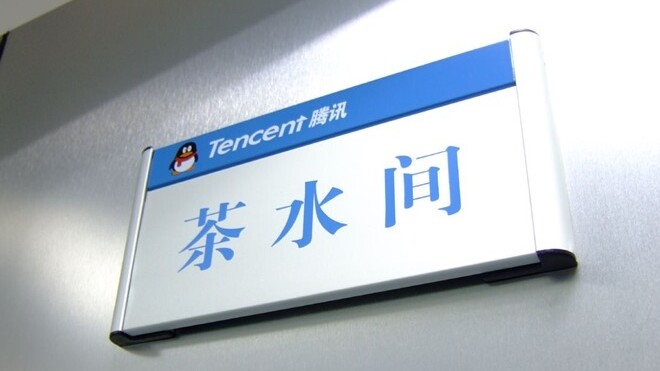
Tencent, China’s largest Internet company, has beaten expectations for the fourth quarter of 2012 after announcing profits of 3.46 billion yuan ($557 million) — up 36.5 percent year-on-year — on total revenue of 12.1 billion RMB ($1.95 billion) — up 53.4 percent on a year prior.
Quarter-by-quarter, revenues increased by 5.1 percent, with profit rising by 7.6 percent on the previous three months of business. Tencent also announced its end of year financial results, which included 43.9 billion ($6,983.3 million) in revenue, a whopping 54 percent increase on its income for 2011.
Breaking down the Q4 figures, revenue from Internet value added services (IVAS) was the highest income stream; online advertising and e-commerce saw the highest growth:
- Revenues from IVAS were 8,455.9 million RMB ($1,345.3 million), an increase of 1.0 percent QoQ
- Revenues from MVAS were 933.9 million RMB ($148.6 million), a decrease of 1.3 percent QoQ or an increase of 9.3 percent YoY
- Revenues from online advertising were 947.3 million RMB ($150.7 million), a decrease of 6.7% QoQ or an increase of 58.3 percent YoY
- Revenues from e-Commerce transactions were 1,683.6 million RMB ($267.8 million), an increase of 48.5 percent QoQ
The company stressed that a combination of ad sales revenue and its increasing focused on mobile are behind the impressive financials. In particular, its WeChat (known as Weixin in China) mobile chat application is performing well. Likely to reach 400 million users worldwide this year, rival Sina has publicly admitted that WeChat is causing its users to spend less time on the Twitter-like Sina Weibo service.
“During 2012, widespread smartphone adoption brought both disruption and opportunities to the China Internet industry. At Tencent, we began to see early results from substantial investments we have made, and continue to make, in mobile Internet products,” commented Ma Huateng, Chairman and CEO of Tencent.
Ma also touted its “powerful targeted advertising system” which sits across its range of social networks serving ads to Internet users in China, and beyond.
Here’s an overview of the Tencent business in Q4 2012:
The company provides a summary of the status of its three key products (although it boasts many more): Web messaging platform QQ, mobile chat app Weixin/WeChat, and its Tencent Weibo microblog:
QQ IM, the largest online community in China, grew steadily in 2012. MAU reached 798 million at the end of 2012, representing a year-on-year growth rate of 11%, which was broadly in line with the Internet user growth rate in China. PCU increased by 16% year-on-year to 176 million. Driven by increasing adoption of the mobile Internet, our mobile user base grew more rapidly compared to our PC user base.
Weixin enjoyed substantial user growth in 2012, thanks to its innovative features and compelling user experience. It has quickly become a major communications and social platform for smartphone users in China. Beyond the domestic market, we have launched the product “WeChat” which leverages Weixin’s technology to serve the international markets. Recently, total registered user accounts of Weixin and WeChat have exceeded 300 million.
Microblog reached 87 million DAU at the end of 2012. As the growth of microblog users in China decelerates, we are exploring integration points between Tencent Microblog and Weixin to deepen our differentiation. Tencent Video gained significant audience share during the year riding on content enrichment and user experience enhancement, and has become one of the leading online video platforms in China in terms of unique visitors and video views.
Looking to 2013, Tencent is furthering its focus on mobile and WeChat. In particular, it says it will integrate additional services into WeChat, which are likely to include content apps, games and location-based services. There’s no mention of payments, although the company previously confirmed that it will bring its Paypal-like Tenpay product into WeChat as it bids to monetize the hugely popular service.
WeChat has attracted a significant — but undisclosed — userbase overseas and Tencent says it is “stepping up” its marketing budget to acquire international users. Based on that it seems like we can expect more TV advertising and offline media, which it has used in Indonesia and other markets, as well as a renewed focus on the US, where it is readying an on-the-ground presence.
There will also be a focus on security software and mobile browsers, as the company looks to extend its huge empire in China into international markets.
For more on Tencent and WeChat see: Smash-hit Chinese chat app WeChat’s long march to profitability
Headline image via for3w / Flickr
Get the TNW newsletter
Get the most important tech news in your inbox each week.






